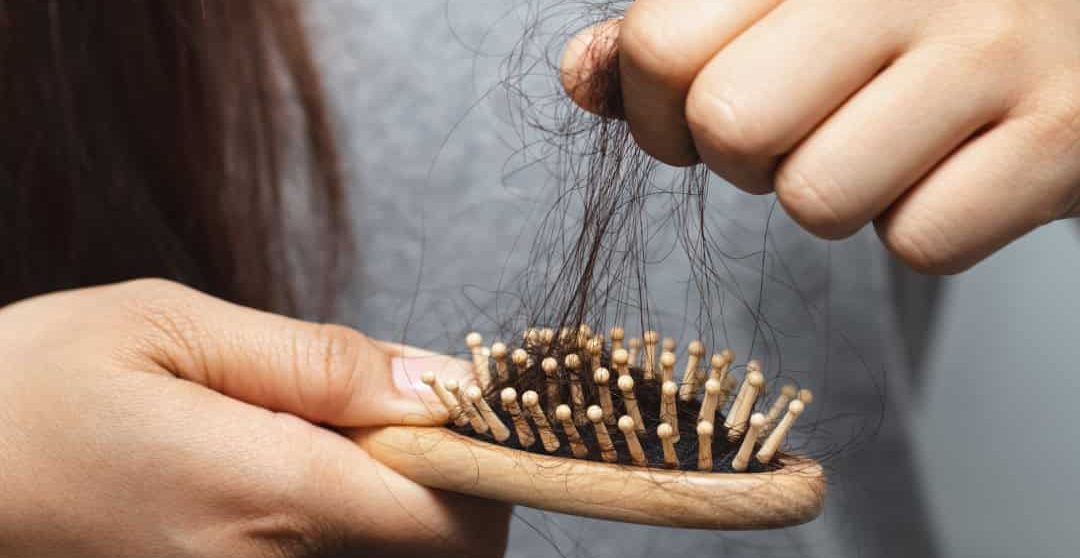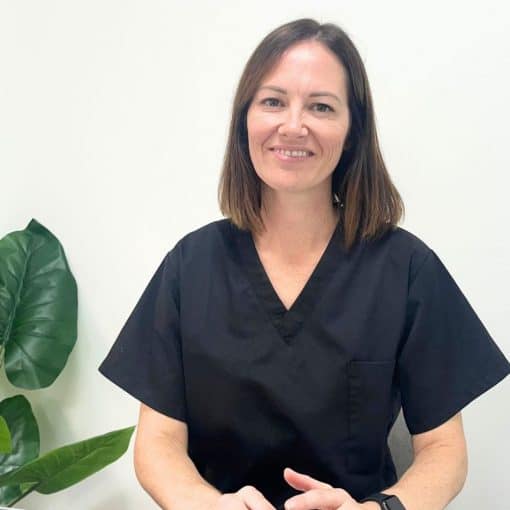
It’s easy to blame hair loss on hormones, especially when you’re a woman. After all, we’ve been told that everything from puberty to menopause, pregnancy to birth control, can wreak havoc on our strands. When it comes to hair loss in women, while hormones certainly play their part, they’re not always the only factors to consider.
Stats reveal that up to 50% of women experience noticeable hair loss at some point in their lives. (1) and that female pattern hair loss (FPHL), which is linked directly to hormones, affects about 1 in 3 women over age 30, and over 50% of women over age 70 (2).
So, if you’re experiencing hair thinning or shedding that seems out of the ordinary, it might be time to dig deeper. Here’s a closer look at the causes of hair loss in women and what you can do about it.
Nutritional Deficiencies
One of the most overlooked causes of hair loss is poor nutrition. Your hair needs a variety of nutrients to grow strong and healthy, and when your diet is lacking, your hair often pays the price. One of my frequently used lines in the clinic is that ‘hair is the first to be asked to leave the party and the last to be invited’, as our body prioritises the distribution of essential nutrients, as ‘non-essential’ hair is often last on the list.
Key nutrients to watch:
Iron
Low iron levels (especially ferritin) are a leading cause of hair thinning.
Vitamin D
This “sunshine vitamin” supports the regulation of the hair follicle cycle.
Biotin
While often marketed for hair growth, biotin deficiency is actually quite rare, and over-supplementation can have negative effects.
Zinc & Protein
Essential for the structure and repair of hair.
What can you do?
A simple blood test can identify deficiencies. If you’re concerned about your diet or nutrition intake, speak with a specialist. It’s always advisable to seek professional advice before starting supplements.
Chronic Stress and Trauma
Stress doesn’t just weigh on your mind, it can also mess with your hair. High stress levels can trigger telogen effluvium, a condition where a large number of hair follicles enter the shedding phase all at once, and you could notice considerable thinning of the hair.
This can happen after:
- Major life events (divorce, grief, illness)
- Surgery
- Rapid weight loss
- COVID-19 or other viral infections
What can you do?
Stress-related hair loss usually resolves in a few months, but managing stress through lifestyle changes, therapy, or mindfulness practices can help support regrowth. Ongoing or recurring telogen effluvium could benefit from specialist help. It’s always worth speaking to a hair loss specialist if you notice increased thinning to ascertain the cause and review potential solutions.
Thyroid Disorders
Your thyroid is a small gland with a big job. It regulates metabolism, and when it’s out of balance, either overactive (hyperthyroidism) or underactive (hypothyroidism), hair loss can occur as the normal cycle and messaging from the thyroid is out of sync.
Signs your thyroid may be involved:
- Fatigue
- Weight changes
- Cold intolerance
- Irregular menstrual cycles
What can you do?
Ask your doctor for a full thyroid panel—not just TSH—to get a complete picture. It’s so important to get the full panel and also to see where your levels are within the normal range; levels hanging out at the extremes of the ‘normal’ can signify an imbalance without being out of range.
Autoimmune Conditions
Sometimes, your immune system mistakenly attacks your own hair follicles, leading to hair loss. The most well-known example is alopecia areata, which causes patchy hair loss on the scalp or body, and which can advance to total hair loss. But other autoimmune conditions like lupus or Hashimoto’s thyroiditis can also play a role.
What can you do?
If your hair loss is sudden, patchy, or accompanied by other symptoms (like joint pain or fatigue), it’s time to contact either a hair loss specialist, your GP or a dermatologist.
Medications and Medical Treatments
Some prescription drugs can interfere with the hair growth cycle.
These include:
- Antidepressants
- Blood pressure medications
- Chemotherapy
- Acne treatments with high doses of Vitamin A
What can you do?
Never stop a medication without medical advice, but do talk to your doctor or hair loss specialist about alternatives or hair loss treatments if you suspect a drug is contributing to hair loss.
Scalp Conditions
A healthy scalp is the foundation of healthy hair. Think of scalp skin like the soil for plants, it has to be in good condition and nourished for the hair to flourish. Conditions like seborrheic dermatitis, psoriasis, or fungal infections can inflame the scalp and disrupt hair growth.
Signs to look out for:
- Itching
- Flaking
- Redness
- Bumps or scaling
What can you do?
Speak with a trichologist/hair loss specialist who can diagnose scalp issues and recommend medicated shampoos or treatments to resolve the issues.
Final Thoughts
Hair loss in women is more common and more complex than many people realise. While hormones often play a key role, they’re rarely the whole story. If you’ve noticed unusual hair shedding or thinning, listen to your body. It may be trying to tell you something.
The good news? Many causes of hair loss are treatable and, in some cases, reversible with the right care and support. Don’t be afraid to ask questions, seek answers, and advocate for your health. Because your hair deserves more than just blame—it deserves understanding.
Source: Cleveland Clinic
Source: American Academy of Dermatology (AAD)



